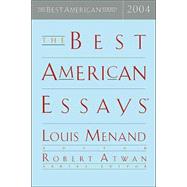
| Foreword | p. ix |
| Introduction | p. xiv |
| America, Look at Your Shame! from Oxford American | p. 1 |
| Envy from Granta | p. 9 |
| The Last Americans from Harper's Magazine | p. 30 |
| The Arctic Hedonist from The American Scholar | p. 48 |
| Caught from The New Yorker | p. 61 |
| The Unreal Thing from The New Yorker | p. 86 |
| A Sudden Illness from The New Yorker | p. 96 |
| Passover in Baghdad from Granta | p. 114 |
| My '80s from Artforum | p. 128 |
| My Yiddish from The Threepenny Review | p. 138 |
| Bix and Flannery from Raritan | p. 152 |
| Against Cool from Gingko Tree Review | p. 160 |
| Yarn from Harvard Review | p. 194 |
| Lifelike from The New Yorker | p. 203 |
| Rock 101 from The New Yorker | p. 213 |
| The Mind's Eye from The New Yorker | p. 225 |
| My Lost City from The New York Review of Books | p. 246 |
| Arrow and Wound from Harper's Magazine | p. 257 |
| My Father Is a Book from The Threepenny Review | p. 269 |
| Bullet in My Neck from The Georgia Review | p. 277 |
| Amor Perdida from Michigan Quarterly Review | p. 287 |
| An Enlarged Heart from The New Yorker | p. 293 |
| Biographical Notes | p. 311 |
| Notable Essays of 2003 | p. 316 |
| Table of Contents provided by Ingram. All Rights Reserved. |
The New copy of this book will include any supplemental materials advertised. Please check the title of the book to determine if it should include any access cards, study guides, lab manuals, CDs, etc.
The Used, Rental and eBook copies of this book are not guaranteed to include any supplemental materials. Typically, only the book itself is included. This is true even if the title states it includes any access cards, study guides, lab manuals, CDs, etc.
Excerpted from The Best American Essays 2004
All rights reserved by the original copyright owners. Excerpts are provided for display purposes only and may not be reproduced, reprinted or distributed without the written permission of the publisher.